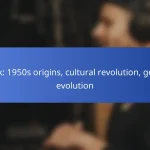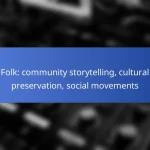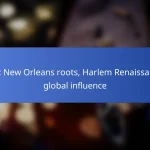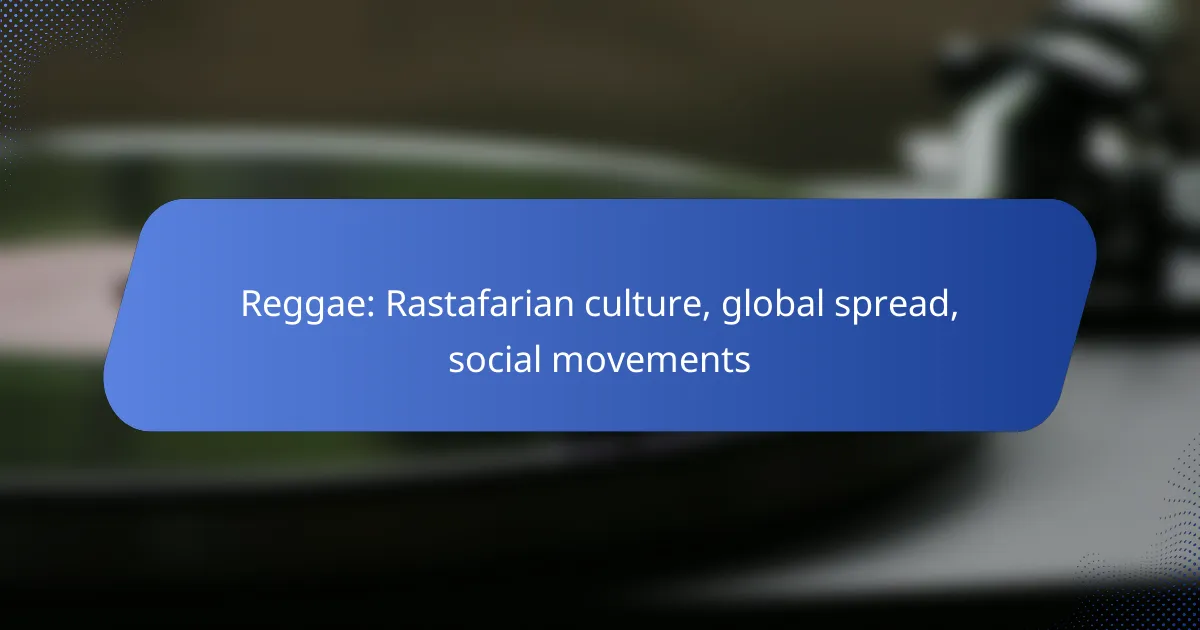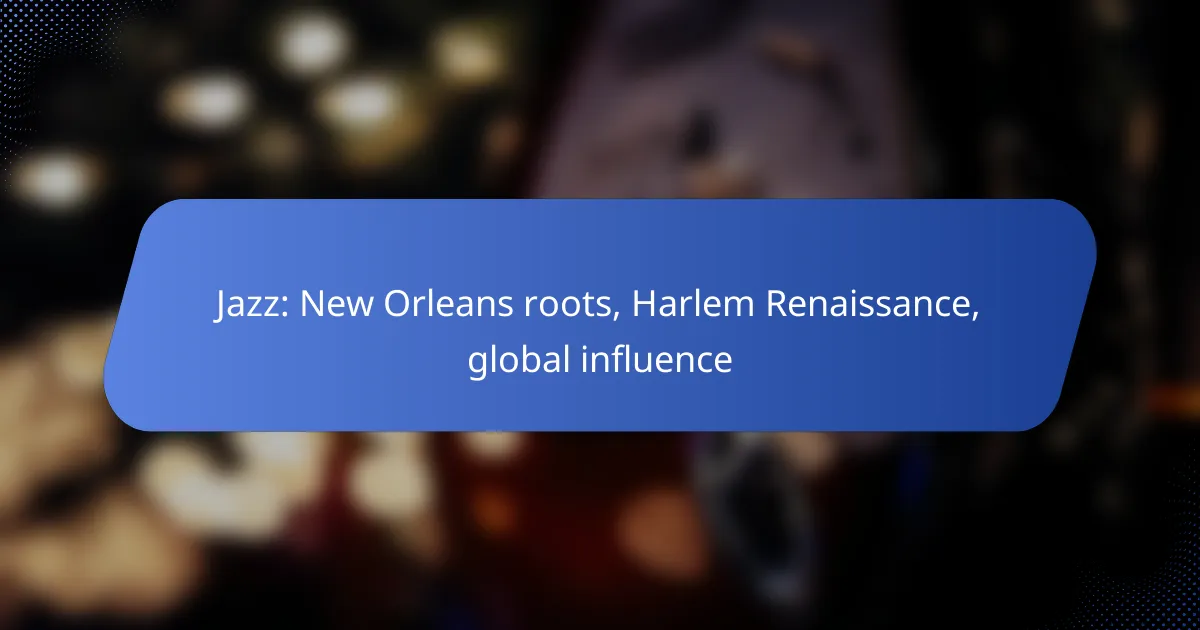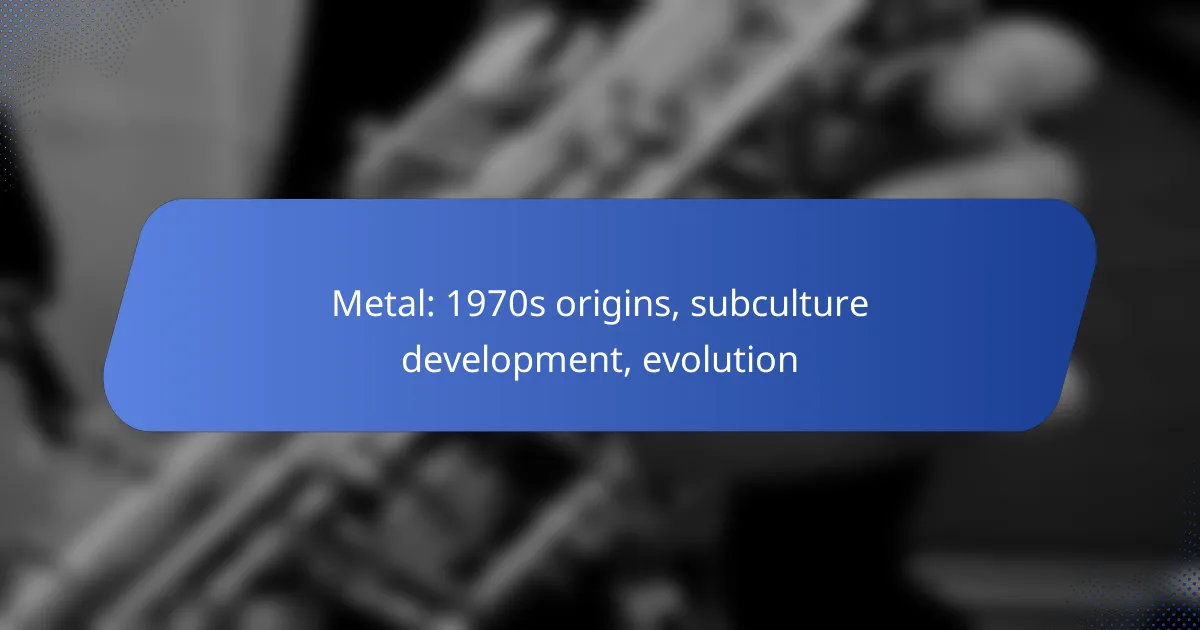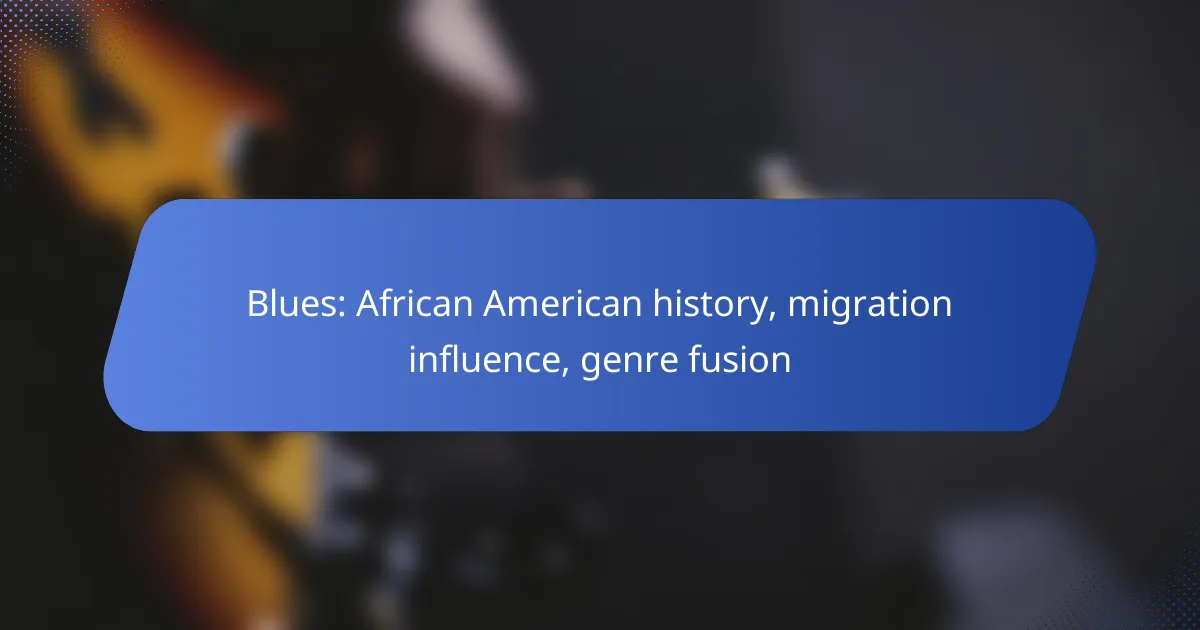Reggae music, deeply intertwined with Rastafarian culture, embodies spiritual beliefs and themes of resistance, love, and unity. As a powerful medium for social movements, it amplifies the voices of marginalized communities, inspiring collective action and change. The genre’s global spread, fueled by cultural exchange and media, has allowed its rhythms and messages to resonate with diverse audiences, influencing various musical styles and social causes worldwide.
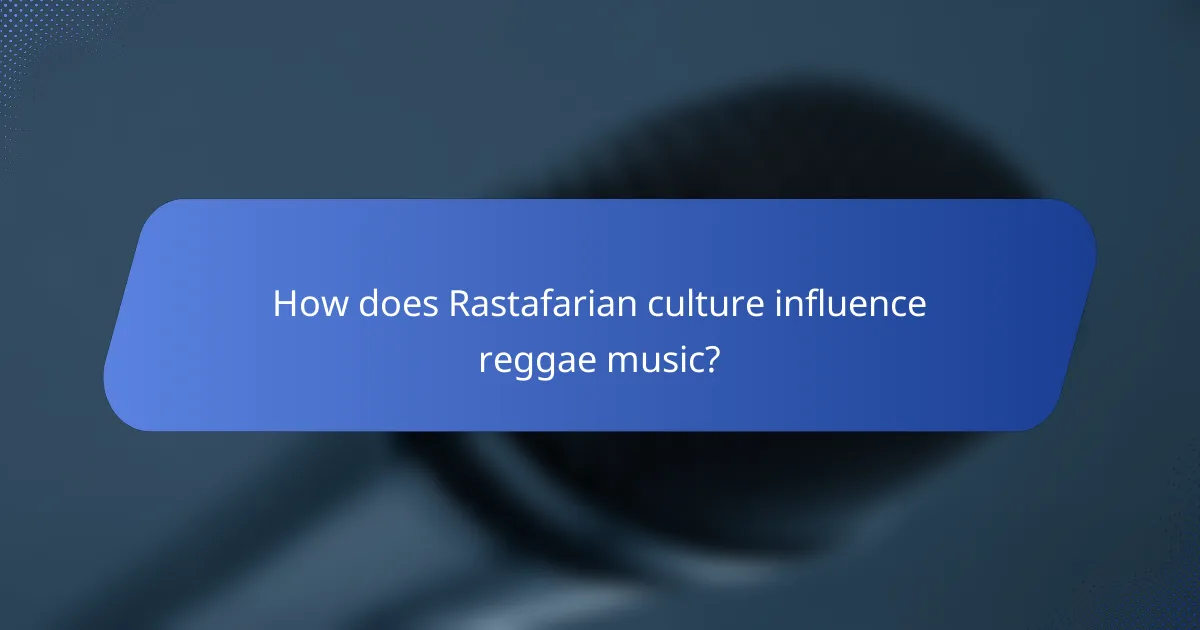
How does Rastafarian culture influence reggae music?
Rastafarian culture profoundly influences reggae music through its spiritual beliefs, lyrical themes, and cultural practices. This connection shapes the genre’s identity, promoting messages of resistance, love, and unity while celebrating African roots.
Spiritual themes in lyrics
Reggae music often incorporates spiritual themes rooted in Rastafarian beliefs, emphasizing concepts such as faith, redemption, and the struggle against oppression. Lyrics frequently reference biblical stories and figures, reflecting the Rastafarian view of life as a spiritual journey.
Artists like Bob Marley have famously used their music to convey messages of hope and resilience, encouraging listeners to seek higher consciousness and connection to the divine. This spiritual dimension resonates deeply with audiences, enhancing the genre’s emotional impact.
Use of traditional instruments
Reggae music prominently features traditional instruments that are integral to Rastafarian culture, such as the guitar, bass, drums, and keyboard. The rhythmic patterns created by these instruments, particularly the offbeat guitar strumming, are characteristic of reggae’s distinctive sound.
Incorporating instruments like the nyabinghi drums, which are used in Rastafarian ceremonies, adds a cultural authenticity to reggae music. This blend of traditional sounds with modern influences creates a unique musical experience that honors Rastafarian heritage.
Connection to African heritage
Rastafarian culture emphasizes a strong connection to African heritage, which is reflected in reggae music’s themes and aesthetics. Many reggae artists draw inspiration from African history, spirituality, and social issues, promoting a sense of pride and identity among listeners.
This connection is often expressed through the use of African rhythms, melodies, and even languages in reggae songs. By celebrating African roots, reggae serves as a powerful medium for cultural expression and social commentary, fostering unity among people of African descent worldwide.
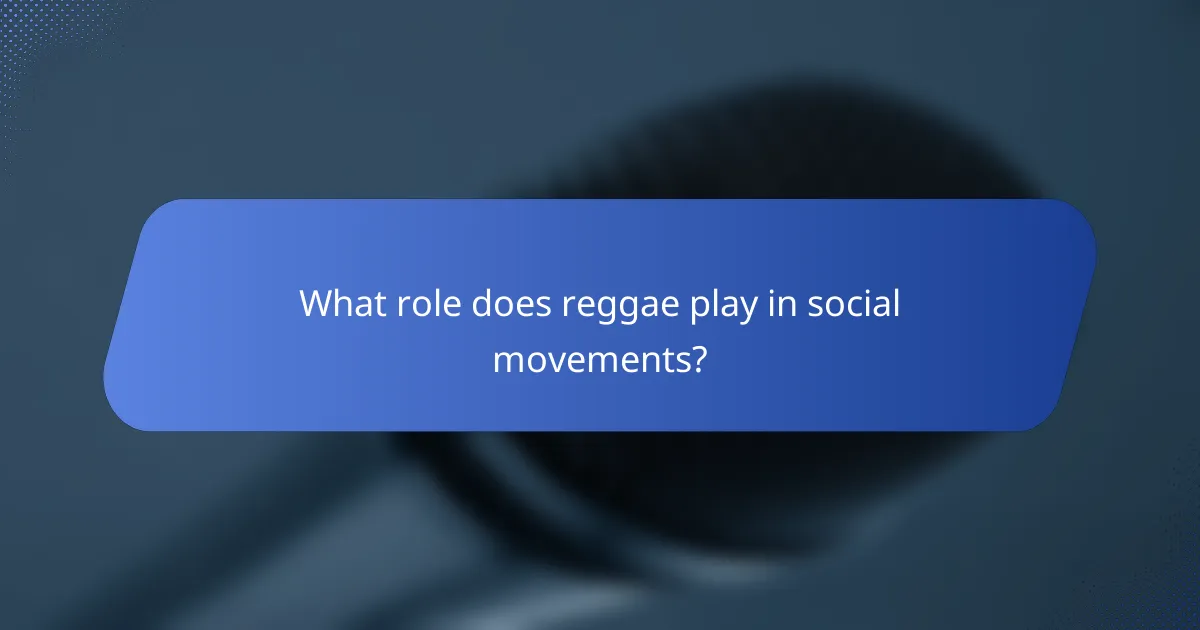
What role does reggae play in social movements?
Reggae serves as a powerful tool for social movements by amplifying messages of resistance and empowerment. Through its rhythms and lyrics, reggae music articulates the struggles of marginalized communities and inspires collective action for change.
Advocacy for social justice
Reggae music often addresses issues of inequality, oppression, and human rights, making it a vital voice for social justice. Artists like Bob Marley and Peter Tosh have used their platforms to highlight injustices faced by the Rastafarian community and other marginalized groups. Their songs encourage listeners to challenge systemic injustices and advocate for their rights.
For effective advocacy, reggae musicians frequently collaborate with grassroots organizations and social activists. This partnership helps to raise awareness and mobilize support for various causes, from anti-apartheid movements to contemporary struggles against police brutality.
Promotion of peace and unity
Reggae promotes peace and unity by emphasizing themes of love, harmony, and togetherness. The genre encourages listeners to embrace diversity and work towards a common goal of social cohesion. Songs like “One Love” exemplify this message, calling for solidarity among all people regardless of their backgrounds.
To foster unity, reggae artists often perform at festivals and community events that bring together diverse audiences. These gatherings not only celebrate the music but also create spaces for dialogue and understanding, reinforcing the idea that collective efforts can lead to positive social change.

How has reggae music spread globally?
Reggae music has spread globally through cultural exchange, media, and the influence of Rastafarianism. Its rhythms and messages resonate with diverse audiences, leading to its adoption in various musical genres and social movements around the world.
Influence on international artists
Many international artists have incorporated reggae elements into their music, expanding its reach beyond Jamaica. Notable examples include musicians like Eric Clapton, who covered Bob Marley’s songs, and bands like The Police, which blended reggae with rock. This fusion has helped reggae influence genres such as hip-hop, pop, and electronic music.
Collaborations between reggae artists and musicians from other genres have become common, creating a cross-pollination of styles. These partnerships often introduce reggae to new audiences, further solidifying its global presence.
Reggae festivals worldwide
Reggae festivals have emerged in various countries, celebrating the genre and its cultural roots. Events like the Rototom Sunsplash in Spain and the Reggae Sumfest in Jamaica attract thousands of fans, showcasing both established and emerging artists. These festivals not only promote reggae music but also foster a sense of community among fans.
Many festivals include workshops and discussions on Rastafarian culture and social issues, enhancing the educational aspect of the events. This engagement helps attendees understand the deeper meanings behind the music and its cultural significance.
Integration into local cultures
Reggae has been integrated into local cultures across the globe, influencing music, fashion, and social movements. In countries like Brazil and South Africa, reggae has merged with local musical styles, creating unique subgenres that reflect local experiences and struggles.
This integration often promotes messages of peace, resistance, and social justice, resonating with communities facing similar challenges. As reggae continues to evolve, it remains a powerful tool for cultural expression and social change worldwide.
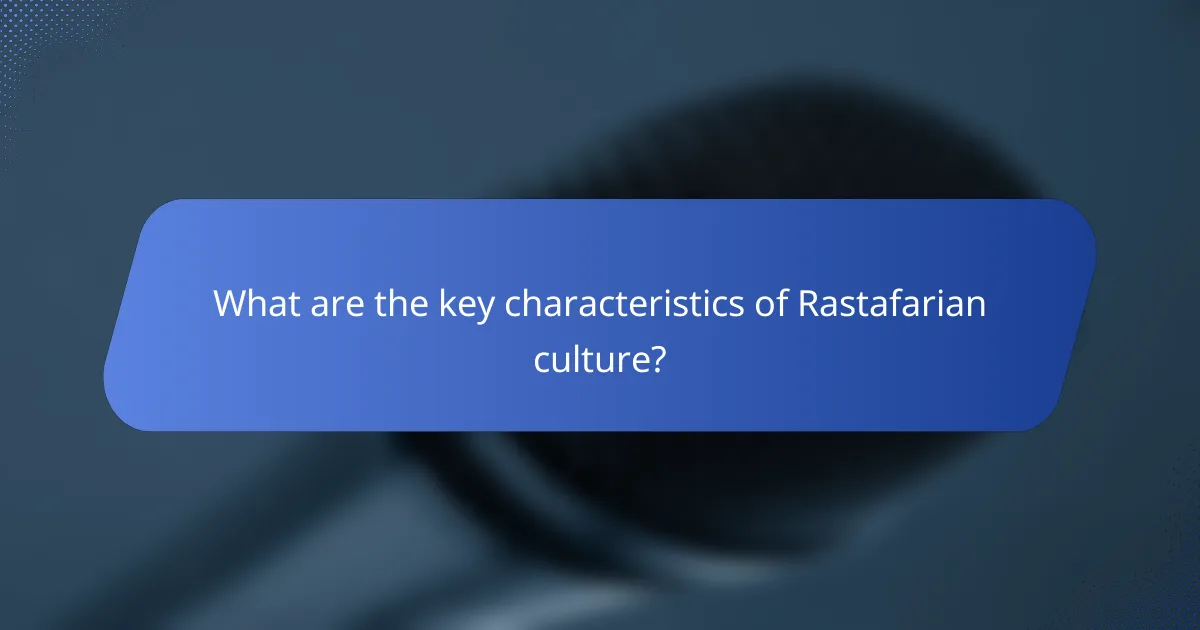
What are the key characteristics of Rastafarian culture?
Rastafarian culture is characterized by its unique beliefs, values, and practices that emphasize a connection to African heritage, spirituality, and social justice. Central to this culture is the reverence for Haile Selassie I, the former Emperor of Ethiopia, who is viewed as a messianic figure.
Beliefs and values
Rastafarian beliefs center around the idea of repatriation to Africa and the importance of living in harmony with nature. Followers often advocate for social justice, equality, and the rejection of materialism, promoting a lifestyle that values community and collective well-being.
Key values include the concept of “I and I,” which emphasizes unity and interconnectedness among people. This principle fosters a sense of shared identity and purpose, encouraging members to support one another in their spiritual and social endeavors.
Symbolism and rituals
Rastafarian symbolism is rich and varied, often incorporating colors like red, gold, and green, which represent the blood of martyrs, the wealth of Africa, and the lushness of the land, respectively. These colors are frequently displayed in clothing, flags, and artwork, reinforcing cultural identity.
Rituals in Rastafarian culture include the use of ganja (marijuana) as a sacrament, believed to enhance spiritual connection and meditation. Additionally, communal gatherings, known as “reasoning sessions,” provide a space for discussion, music, and the sharing of experiences, strengthening community bonds.

How do reggae and Rastafarian culture intersect with Australian identity?
Reggae and Rastafarian culture have significantly influenced Australian identity, particularly through music and community values. The themes of social justice, unity, and resistance found in reggae resonate with many Australians, fostering a sense of belonging and cultural expression.
Local reggae artists
Australia boasts a vibrant reggae scene with artists who blend traditional reggae sounds with local influences. Notable musicians like Bomba and The Black Seeds have gained popularity, showcasing the genre’s adaptability and appeal. These artists often address social issues relevant to Australian audiences, reflecting the Rastafarian ethos of empowerment and community.
Emerging talents in cities like Melbourne and Sydney continue to push the boundaries of reggae, incorporating elements from hip-hop and electronic music. This fusion not only enriches the genre but also attracts diverse audiences, further embedding reggae into the Australian cultural landscape.
Community events and gatherings
Community events celebrating reggae and Rastafarian culture are prevalent across Australia, often featuring music festivals, dance parties, and cultural workshops. Events like the Reggae on the River festival in New South Wales draw large crowds, promoting unity and cultural exchange among attendees. These gatherings serve as platforms for local artists and foster connections within the community.
Additionally, many Australian cities host regular jam sessions and open mic nights dedicated to reggae music. These informal events encourage participation and collaboration, allowing both seasoned musicians and newcomers to share their passion for reggae and Rastafarian culture, reinforcing its significance within Australian identity.
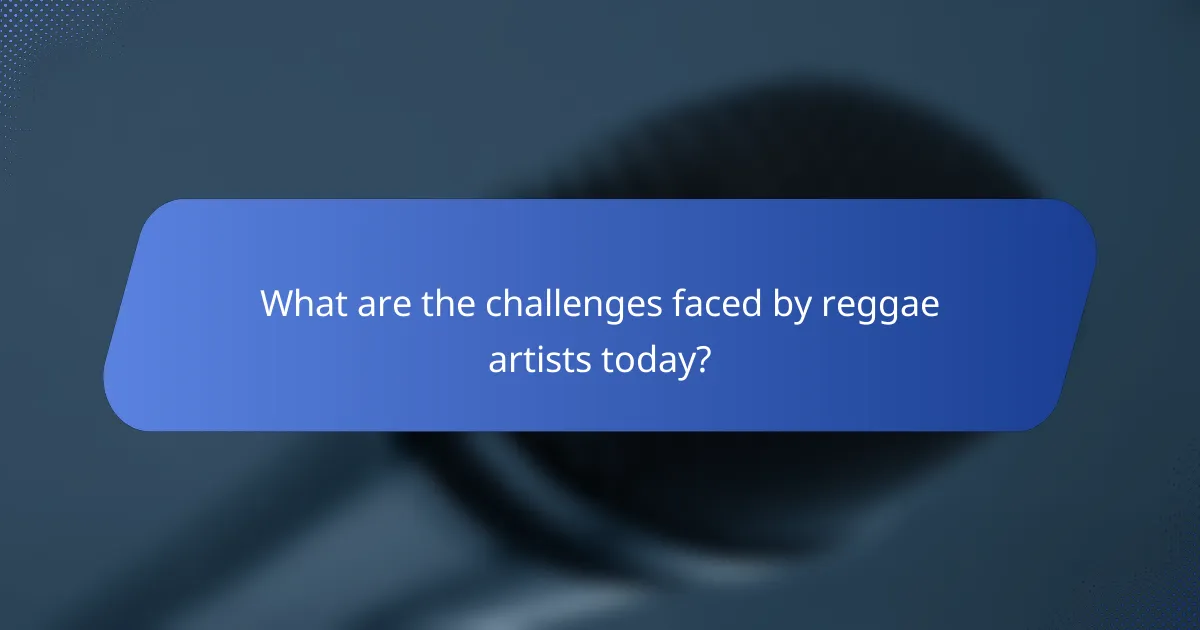
What are the challenges faced by reggae artists today?
Reggae artists today encounter various challenges, including commercialization pressures and the need to maintain cultural authenticity. These issues can impact their artistic expression and connection to the roots of reggae music.
Commercialization of reggae
The commercialization of reggae often leads to a dilution of its original message and cultural significance. As reggae gains popularity worldwide, artists may feel compelled to adapt their music to appeal to broader audiences, which can compromise their artistic integrity.
Many reggae artists face pressure to produce commercially viable music that aligns with mainstream trends. This shift can result in a focus on catchy hooks and pop influences rather than the traditional themes of resistance and social justice that characterize reggae.
Preservation of cultural authenticity
Preserving cultural authenticity is a significant challenge for reggae artists as they navigate the global music landscape. Artists must balance the desire for international recognition with the responsibility to honor the roots of reggae, which are deeply tied to Rastafarian culture and Jamaican history.
To maintain authenticity, reggae musicians can engage with their local communities, draw inspiration from traditional sounds, and address social issues relevant to their heritage. Collaborations with other artists who respect the genre’s origins can also help reinforce cultural ties while reaching new audiences.



